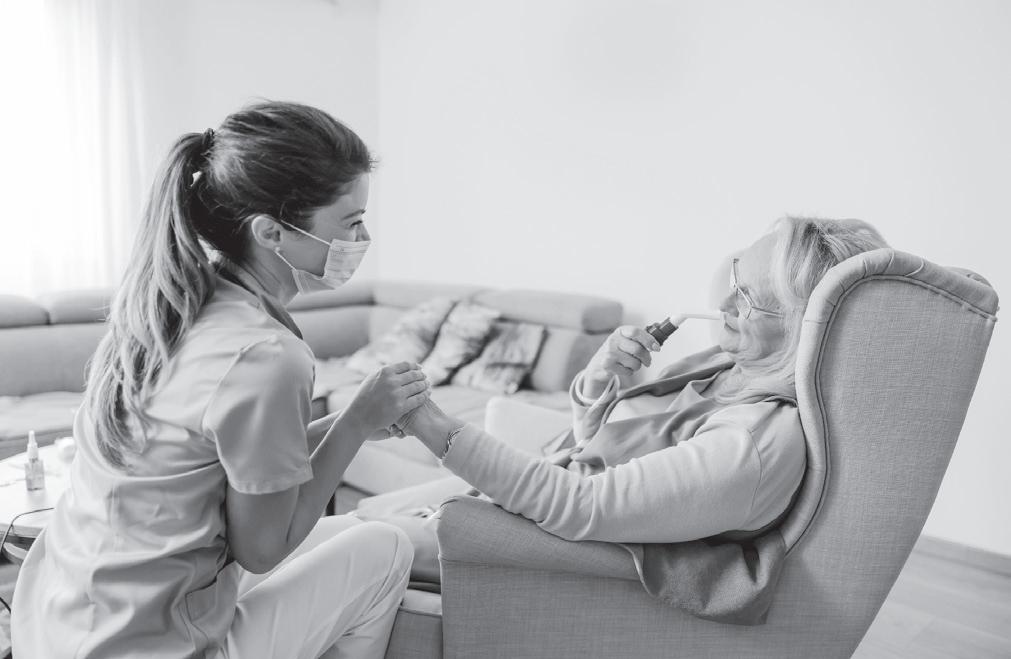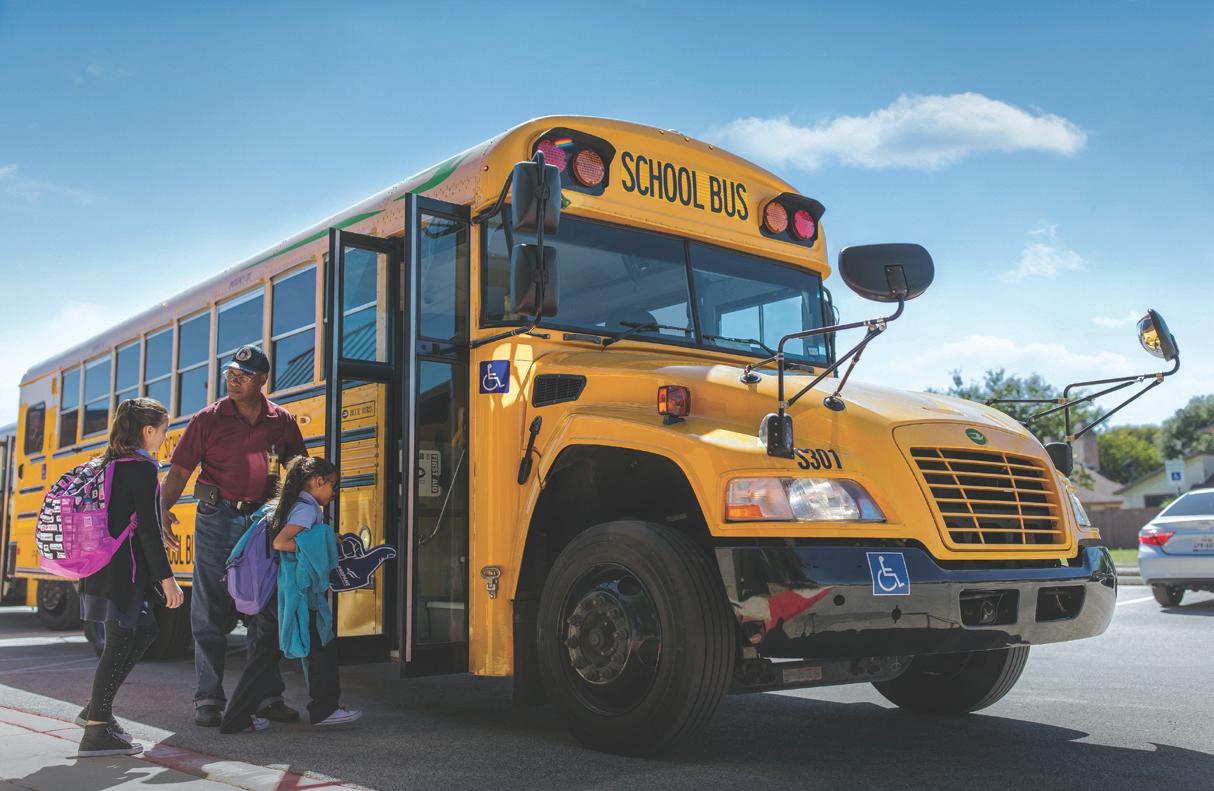
5 minute read
Pet Parents
12 Austin South Asian | September 2022
7 Tips For Pet Parents To Be Environmentally Friendly
For many people, “going green” means walking rather than driving, ditching single-use plastics and conserving energy.
To go above and beyond, pet parents can follow additional measures that aid the planet while also supporting their furry friends.
Consider these eco-friendly ideas
from Freshpet’s Nature’s Fresh line to support your pets and those in your community while also being environmentally friendly.
Explore Locally
An easy way to reduce your carbon footprint is to visit dog parks and other pet-friendly locations within walking distance rather than driving.
It’s a perfect opportunity to explore new hiking or walking trails, contribute to pet-friendly establishments and get a little exercise for both you and your furry friend.
Opt for Eco-Friendly Foods
There are planet-friendly food choices available for pets, like Freshpet’s Nature’s Fresh, which sustainably sources ingredients with regenerative farming methods and offers certified humanely raised proteins. into energy.
The kitchens in which the food is made and the refrigerators where customers find it use electricity generated by renewable wind or solar energy.
Swap Out Single-Use Products
When you’re out for a walk with
your pet, bring Earth-friendly products like a reusable water bottle rather than a single-use plastic bottle that may one day become a pollutant in waterways or food sources.
For your furry friend, a water bowl that collapses completely makes the item easy to store when not in use while also minimizing waste.
Support Local Shelters
If you’re not yet a pet parent but would like to become one, consider turning to local shelters. Adopting versus buying helps control overpopulation and its environmental impact.
Another way you can contribute to local shelters is donating gently used blankets, towels, water dishes, leashes, collars, grooming tools and beds. This gives items a second life and helps reduce landfill waste.
Use Compostable Pet Waste Bags
Picking up after your pet doesn’t have to create additional waste. Use compostable bags to avoid adding single-use baggies to landfills.
Made from natural plant starch without toxic materials, compostable bags are an eco-friendly option for disposing pet waste.
If you have a compost pile used for plants you don’t plan on eating, simply toss the bag in that pile.
Alternately, if your compost pile is used for fruits and veggies in a garden, be sure to bury the waste bags elsewhere – pet excrement can contain pathogens that are harmful to humans.
Go Digital with Pet Health Records Many veterinarians still utilize paper records, but these records are easily lost and can be harmful to the environment.
Consider creating a digital record of all your pet’s health documents via the cloud so you and your family can access it anywhere.
Pet parents can be sure the documents are always on-hand if they have their smartphones and can recycle the paper documents once they’ve been saved digitally or reuse the documents as scratch paper.
Find more environmentally friendly advice for pet parents at Freshpet.com/NaturesFresh.
Photo courtesy of Getty Images (Family Features)
To Advertise In ASA Call 512-828-6709
3 Tips To Boost Your Children’s Self-Esteem This School Year
While packing bags and backpacks for school, there’s one essential that may be overlooked: Children’s self-esteem. Although many children may feel confident and selfassured at home, they can feel differently in the classroom. When children have high self-esteem,
they’re less likely to reflect negative feelings toward others.
“If children can treat themselves kindly, they’ll treat others that way,” said Carter Peters from KinderCare Learning Centers’ education team. “When children feel encouraged, supported and loved, they are able to give those feelings to others.”
Consider these three tips to boost your children’s self-esteem.
Be Your Children’s Cheerleader. When praising or complimenting children for their achievements, be specific and include affirmation for positive character traits, such as “You were so kind to help Ms. Delmar take her recycling out” or “I’m proud of you for seeing she needed help and offering it.” Being specific with your compliments reinforces the idea that your children are kind and helpful. Eventually, they’ll offer others the same positive affirmations and be less likely to look to outside influences to define their sense of self.
“When children have high selfesteem and self-worth, they know when someone’s opinion of them is untrue,” Peters said. “Children with high self-esteem become adults capable of believing in themselves.” Give Children Space to Safely Express Their Emotions. While it’s important to intentionally connect with your children one-on-one, it’s equally important to give them space to come to you for help. Let them know you notice when they don’t seem like themselves but try not to push them to share before they’re ready.
You can talk with your children about the ways they can communicate with you, aside from one-onone conversations. If they find it easier to communicate their feelings through writing, you can go to the store together to pick out a journal. Children who are not yet proficient writers may prefer to draw pictures about their feelings. No matter the method, be sure to make time to check in with your children.
Teach Emotional Literacy and Replacement Skill Behavior. You can help your children move beyond comprehension of basic emotions – happy, sad, mad – and toward an understanding of more nuanced emotions. When children can identify their feelings, they’re closer to developing healthy responses.
Commonly labeled “bad behaviors” are often young children’s way of communicating something is wrong, so they may need help identifying the emotion driving their actions. It’s important for children to understand that while their feelings are acceptable, their behavior may not be. That’s where replacement skills – acceptable ways to express emotions – come in. For example, try saying “It’s OK to be mad. It’s not OK to hit other people. When you’re mad, you can hit a pillow.” For more tips to help boost children’s self-esteem, visit kindercare.com. (Family Features)











